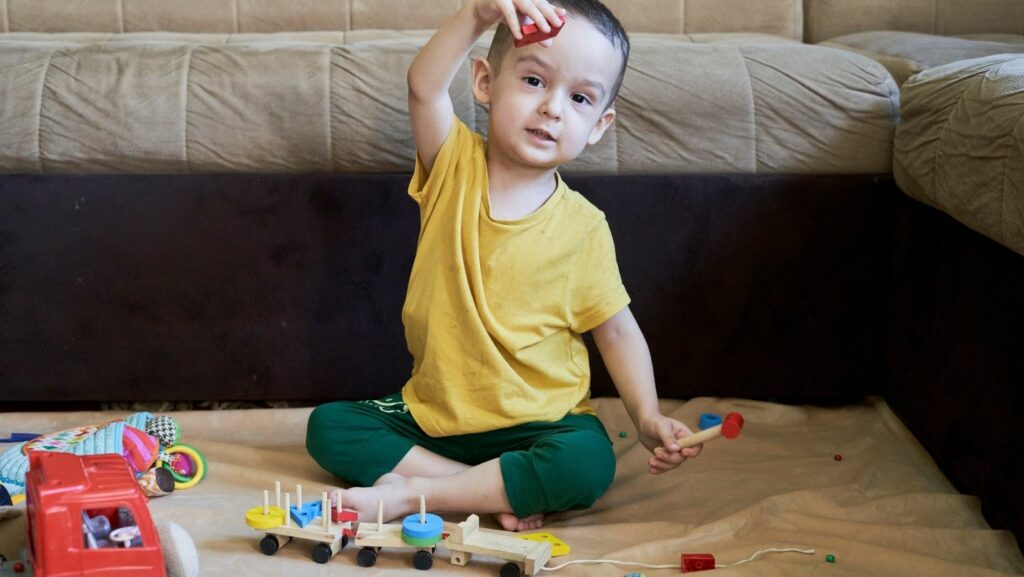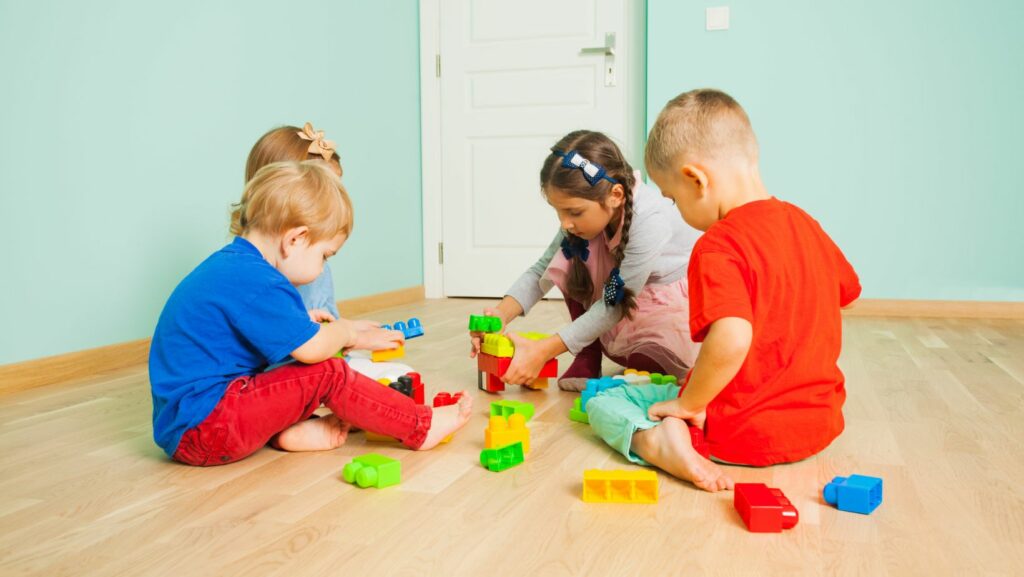Budding scientists aren’t born—they’re made. And what better place to start than in the comfort of your own home? For parents seeking to ignite a spark of curiosity in their 3-5 year olds, at-home science activities can be a fun and educational solution.
These activities aren’t just child’s play—they’re stepping stones to a world of discovery. They’re designed to engage young minds, stimulate their senses, and foster a love for science. So, let’s dive into the world of at-home science for little ones and explore the wonders that await them.
Science Activities For 3-5 Year Olds At Home
 3-5 year olds possess innate curiosity, making this age optimal for introductory science activities at home. Let’s delve into the importance of science in early childhood development and also elaborate on the benefits of introducing science early on.
3-5 year olds possess innate curiosity, making this age optimal for introductory science activities at home. Let’s delve into the importance of science in early childhood development and also elaborate on the benefits of introducing science early on.
Science plays a pivotal role in early childhood development, influencing multiple aspects of a child’s growth. Engaging children in science activities at-home can stimulate cognitive development, as it cultivates analytical thinking and problem-solving skills. For example, a simple activity like “Sink or Float?” encourages children to predict outcomes and test hypotheses.
Lastly, science activities can enhance fine motor skills. For instance, activities that involve observation and manipulation of small objects, such as ‘Building a Birdhouse’ or ‘Creating Crystal Shapes with Salt’, refine hand-eye coordination.
Benefits of Introducing Science Early
Introducing science early yields manifold benefits for children. First, it fosters a love for learning, which can create a strong educational foundation. For instance, the ‘Dancing Raisin Experiment’ not only fascinates children but it also teaches them about density and buoyancy.
Finally, promoting early science learning cultivates environmental awareness. Activities such as ‘Backyard Bug Hunt’ or ‘Nature Scavenger Hunt’, acquaint children with their surroundings, fostering appreciation for nature and understanding of the ecosystem.
The Role of Parents in Home-based Science Learning
 In any form of learning, parents play an integral role, and in the context of home-based science learning, their function becomes pivotal. Actively participating in their child’s scientific exploration not only supports the child’s cognitive growth but also instills a lifelong love for science.
In any form of learning, parents play an integral role, and in the context of home-based science learning, their function becomes pivotal. Actively participating in their child’s scientific exploration not only supports the child’s cognitive growth but also instills a lifelong love for science.
Parents act as guides during their child’s science exploration, steering them through a fascinating world of discovery.
For instance, during a ‘Baking Soda and Vinegar Volcano’ experiment, a parent can play a lead role in explaining the concept of chemical reactions. By breaking this complex scientific term into simple, manageable pieces of information, they help the child grasp the concept better. Parents add context to the process of discovery, laying a groundwork that allows their child to inquire and learn naturally. An active role in guiding the child’s exploration enables parents to gain insights into their child’s strengths, challenges, and areas of interest.
Providing Support and Encouragement
 A child’s first source of support and encouragement often comes from their parents. In their home-based science journey, a child might face moments of confusion or lack of understanding. It’s at these moments that parents step in. By encouraging the child to persevere through tough experiments, like unearthing patterns in ‘Fun with Shadows’ or predicting outcomes in ‘Magnetic Field Hunt’, they foster a resilient attitude in the child. The steady reinforcement boosts a child’s confidence in their abilities, allowing them to embrace the process of learning rather than fearing the outcome.
A child’s first source of support and encouragement often comes from their parents. In their home-based science journey, a child might face moments of confusion or lack of understanding. It’s at these moments that parents step in. By encouraging the child to persevere through tough experiments, like unearthing patterns in ‘Fun with Shadows’ or predicting outcomes in ‘Magnetic Field Hunt’, they foster a resilient attitude in the child. The steady reinforcement boosts a child’s confidence in their abilities, allowing them to embrace the process of learning rather than fearing the outcome.
Science activities at home can be a fun and educational way to ignite a child’s curiosity. They’re not just about conducting experiments like the ‘Touchable Bubble Experiment’ or the ‘Simple Sink or Float Experiment’, but also about exploring natural phenomena through activities like ‘Fun with Shadows’. It’s about making science engaging with storytelling, themed days, and props, and ensuring safety during experiments. Parents play a crucial role in this learning journey, simplifying complex terms, fostering resilience, and making the process enjoyable. Remember, it’s not just about the results, but the journey of discovery. So, let’s make science fun for our 3-5 year olds at home, encouraging their curiosity, and fostering a lifelong love for learning.



